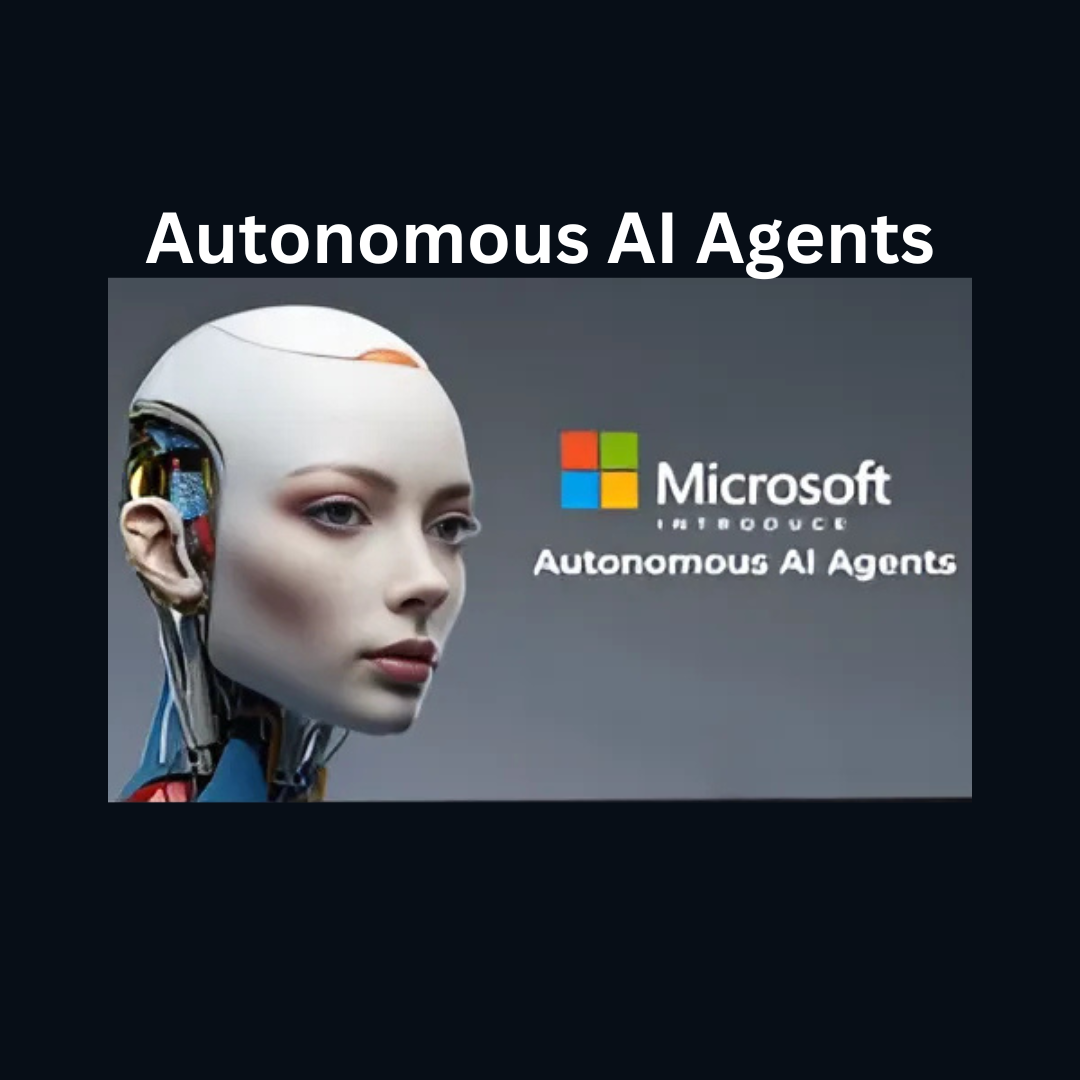Microsoft’s New Autonomous AI Agents: Revolutionizing Business Processes
In the rapidly evolving landscape of artificial intelligence, Microsoft has unveiled its latest innovation: Autonomous AI agents. These agents are poised to transform business operations by automating complex tasks, enhancing efficiency, and fostering innovation. This article delves into the intricacies of Microsoft’s autonomous AI agents, exploring their features, applications, and the potential impact on various industries.
Understanding Autonomous AI Agents
Defining Autonomous AI Agents
Autonomous AI agents are sophisticated software entities capable of performing tasks independently, without continuous human intervention. Unlike traditional AI systems that require explicit instructions, these agents can analyze data, make decisions, and execute actions autonomously, thereby streamlining workflows and reducing manual effort.
Evolution of AI at Microsoft
Microsoft’s journey in AI development has been marked by significant milestones, from the introduction of basic AI tools to the creation of advanced autonomous agents. This progression reflects the company’s commitment to integrating AI into its product suite, aiming to enhance user experience and operational efficiency.
Key Features of Microsoft’s Autonomous AI Agents
Integration with Copilot Studio
A standout feature of these agents is their seamless integration with Copilot Studio, Microsoft’s AI development platform. This integration allows users to create, manage, and deploy AI agents tailored to specific business needs, facilitating a customized approach to automation.
Pre-Built Agents in Dynamics 365
To expedite adoption, Microsoft offers ten pre-built autonomous agents within Dynamics 365. These agents are designed to assist in various domains, including sales, customer service, finance, and supply chain management, enabling businesses to leverage AI capabilities without extensive development efforts.
User-Friendly Customization
Recognizing the diverse requirements of businesses, Microsoft has ensured that these AI agents are highly customizable. Users can modify agent behaviors, integrate them with existing systems, and adapt functionalities to align with organizational objectives, all through a user-friendly interface.
Applications Across Business Functions
Enhancing Sales and Marketing
In sales and marketing, autonomous AI agents can analyze customer data, predict purchasing behaviors, and personalize marketing campaigns This focused strategy improves client relationships and boosts conversion rates.
Streamlining Customer Service
By handling routine inquiries and providing instant support, AI agents enhance customer service operations. They can resolve common issues, escalate complex cases to human agents, and ensure consistent service quality, thereby improving customer satisfaction.
Optimizing Supply Chain Management
In supply chain management, these agents monitor inventory levels, predict demand fluctuations, and coordinate logistics. Such automation minimizes delays, reduces costs, and ensures a more responsive supply chain.
Advantages of Implementing Autonomous AI Agents
Increased Operational Efficiency
By automating repetitive and time-consuming tasks, AI agents free up human resources to focus on strategic initiatives, thereby boosting overall productivity and efficiency.
Cost Reduction
Automation leads to significant cost savings by reducing the need for manual labor, minimizing errors, and optimizing resource utilization, which collectively contribute to a healthier bottom line.
Scalability and Flexibility
AI agents may readily expand their operations to accommodate expanding corporate needs. Their adaptability allows organizations to respond swiftly to market changes, ensuring sustained competitiveness.
Also Read:Meta’s Self-Taught Evaluator: The Future of Autonomous AI
Challenges and Considerations
Data Privacy and Security
Implementing AI agents necessitates stringent data privacy and security measures. Organizations must ensure that sensitive information is protected and that AI operations comply with relevant regulations.
Integration with Existing Systems
Seamless integration with legacy systems can be challenging. Businesses need to assess compatibility and may require technical adjustments to fully leverage AI capabilities.
Employee Training and Adaptation
The introduction of AI agents requires employees to adapt to new workflows. Providing adequate training and fostering a culture of continuous learning are essential for successful implementation.
Case Studies: Early Adopters
McKinsey & Company
Consulting giant McKinsey & Company has integrated Microsoft’s AI agents to streamline client proposal processes. The agents assist in data analysis and proposal drafting, resulting in a 20% increase in deal closures and a 9.4% revenue boost per seller.
Thomson Reuters
Thomson Reuters utilizes AI agents to enhance customer service operations. The agents handle routine inquiries, allowing human agents to focus on complex issues, thereby improving service efficiency and customer satisfaction.
Future Prospects of Autonomous AI Agents
Advancements in AI Capabilities
As AI technology continues to evolve, future iterations of autonomous agents are expected to possess enhanced cognitive abilities, enabling them to handle more complex tasks and make more nuanced decisions.
Broader Industry Adoption
The versatility of AI agents suggests potential applications across various industries, including healthcare, finance, and manufacturing. Their adoption is likely to expand as businesses recognize the benefits of automation.
Continuous Improvement and Learning
Future AI agents will likely incorporate advanced machine learning algorithms, allowing them to learn from experiences and improve performance over time, leading to more effective and efficient operations.
All In All
Microsoft’s introduction of autonomous AI agents marks a significant milestone in the evolution of business automation. By integrating these agents into various functions, organizations can achieve greater efficiency, reduce costs, and remain competitive in an increasingly digital landscape. As technology advances, the role of AI agents is set to become even more integral to business operations, heralding a new era of innovation and productivity.


1 thought on “Microsoft’s Autonomous AI Agents:5 Game-Changing Benefits”